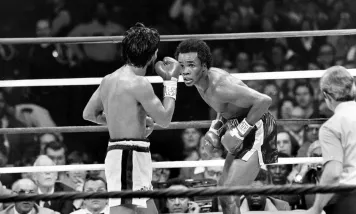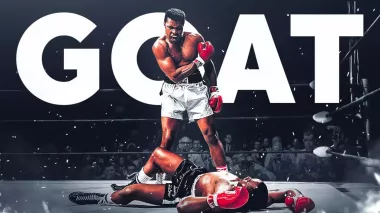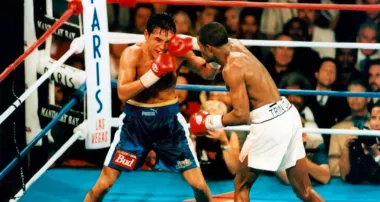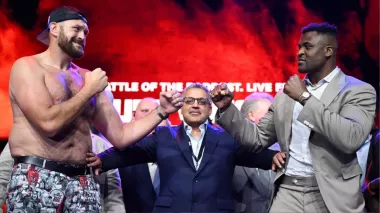
Legacy of Greatness: Analyzing the Impact of Muhammad Ali on Modern Boxing

No one compares to Muhammad Ali in any way. It is challenging to adequately express the significance of a guy who has significantly contributed to society and the sporting world. We'll talk about Muhammad Ali's impact on boxing in this article.
Muhammad Ali was far beyond just an outstanding boxer. He pushed for significant improvements in society and used his boxing celebrity as a weapon to fight injustice. In both its modes and the ring, he revolutionized boxing.
Learn more about Muhammad Ali's impact on boxing by reading on.
Muhammad Ali's Impact on Boxing
Here is Muhammad Ali's impact on boxing.
Boxing: Promoting Oneself
Before Ali, no one made boasts, forecasted bout results, referred to rivals negatively, or even chastised the press after a win. He accomplished all that and did it deftly, with comedy and occasionally, no doubt, with a cruel spirit. However, he supported the struggle. He said, "To beat me, you must be greater than great." It angered supporters. Everyone followed his early matches, particularly since they desired to watch him fail.

Because he stood up for its interests and wasn't ashamed to express the people's annoyances and worries, Black Americans supported him in huge numbers. In addition, owing to their strong personal connection, Ali's chats with the late sports writer Howard Cosell were legendary for their honesty and wit. All weight-class boxers have unsuccessfully attempted to promote contests as Muhammad Ali did.
The World: The Views That Black Men Have
Ali angered and alarmed white America when he changed his name from Cassius Clay. Whites didn't feel good. They labeled him racist because he said things about them that no boxer had ever spoken before or after. He was firmly committed to exposing injustices and regularly did so without hesitation. Although he had trouble reading as an adult, he talked with passion, pride, and knowledge at institutions like Harvard and other locations worldwide. His grit and unshakable dedication to his basic principles improved the perception of the Black man, whose opinions had been suppressed by discriminatory legislation and hate crimes.

Boxing: Strategy
A good fighter only entered a battle with a strategy to increase their chances of winning. Ali, though, elevated planning to a new level. In 1974, when Ali took on George Foreman, many of the boxing audience either predicted or hoped for a Foreman thrashing. Additionally, it was practically a foregone conclusion that Ali would lose the fight when he curled up in the second round. He laid on the ropes, allowing the strong Foreman to beat him down while hurling abuses at him. He did, however, outwit Foreman, weary after the eighth round.
At that point, Ali launched a flurry of blows that knocked the champion to the ground. Ali prevailed in the bout in Zaire known as "The Rumble in the Jungle." Ali termed his plan the "rope-a-dope," and he kept his managers in the dark about it. Despite that, Ali enjoyed strong support from the populace of the African country since he consistently approached the ring with goals other than victory.
The World: Conviction
As a result of Ali's refusal to join the Army and fight in the Vietnam War, he was sent to jail for refusing to serve his country out of moral conviction. He lost his heavyweight title immediately, and people started calling him "draft dodger" and harsher. Ali never shrank back. From March 1967 until October 1970, when he would have been between 25 and shy of 29, he did not compete in any fights.

Muhammad Ali attracted both friends and critics for his determination to come out opposing racism in the United States and how it affected both domestic and global affairs. Following almost five years of litigation, the U.S. Supreme Court eventually overturned Ali's draft conviction in 1971 with an 8-0 decision (with Thurgood Marshall abstaining).
Boxing: Style
Particularly for a heavyweight, Ali defied the stereotype of the boxer. Numerous boxers employ the high guard as safety and prefer to be flatfooted. Ali's boxing style defied all the rules and guidelines.
Ali was quick on his feet and hopped elegantly about the ring, captivating and perplexing opponents. He was fast, mysterious, and deadly all at once. No boxer before Ali maneuvered in the ring as he did. He also kept his hands low, which is against boxing rules. To avoid his opponent's strikes, he counted on his quick reactions. He got away with it thanks to his quickness, which made him surprising in the ring. Ali's trainer, Angelo Dundee, accepted his uniqueness and did not try to alter it. Instead, he honed Ali's advantages and supported his distinctive fighting method. It was the last of Muhammad Ali's impact on boxing.
You are now aware of Muhammad Ali's impact on boxing. On Boxingbite, you can watch the most recent boxing fights for free. With many high-caliber Reddit boxing streams, you can watch every match live and for nothing right here.
FAQs
Why did Muhammad Ali decide to change his name?
Ali, who was formerly known as Cassius Clay Jr., changed his name in 1964 after he joined the Nation of Islam. He was deprived of his heavyweight championship and given a three-year boxing suspension during the peak of his career because he rejected to join the military, claiming his religious convictions.
Muhammad Ali died in what manner?
He reportedly had respiratory problems made worse by the Parkinson's disease he was initially diagnosed with in the 1980s. Throughout 61 fights and 56 victories, Ali's heavyweight boxing legacy was established.
What kind of societal transformation did Muhammad Ali affect?
After winning the heavyweight world champion title, Ali didn't limit his attention to boxing. He influenced societal change by using his status as the most well-known athlete in the world. He joined the Nation of Islam and was vocal against racial unfairness as an African American who had grown up in the segregated South.
How old was Muhammad Ali when he started wrestling professionally?
He became professional the following year after winning the light heavyweight gold medal at the 1960 Summer Olympics at 18.
Conclusion
We hope this post about Muhammad Ali's impact on boxing is helpful. Muhammad Ali has had the most impact on people of any athlete. No sportsperson has ever had such a warm and passionate reception, and no sportsperson will ever be remembered in nearly the same manner. That pleasure had earned it. He influenced cultural transformation and motivated and empowered many individuals worldwide.


